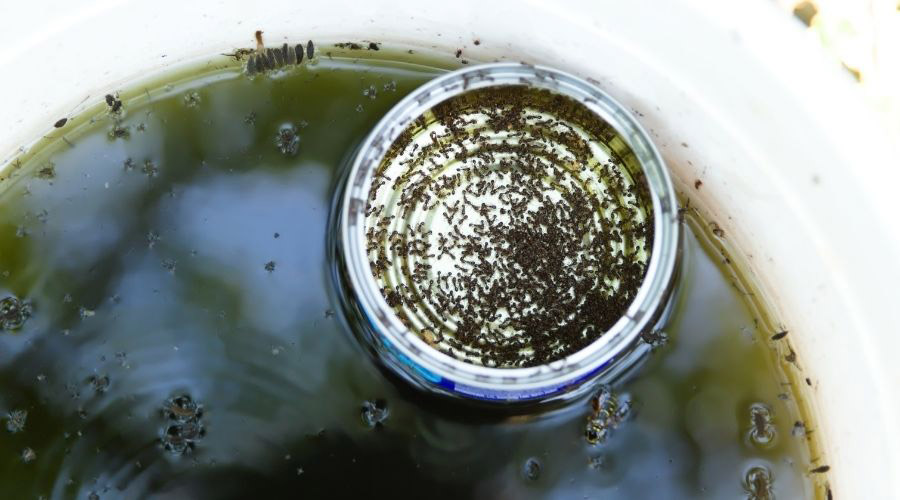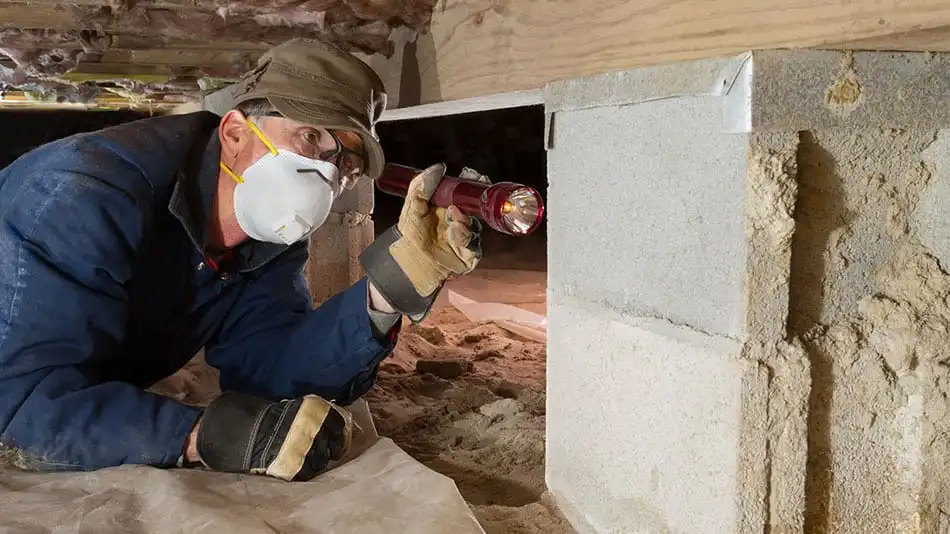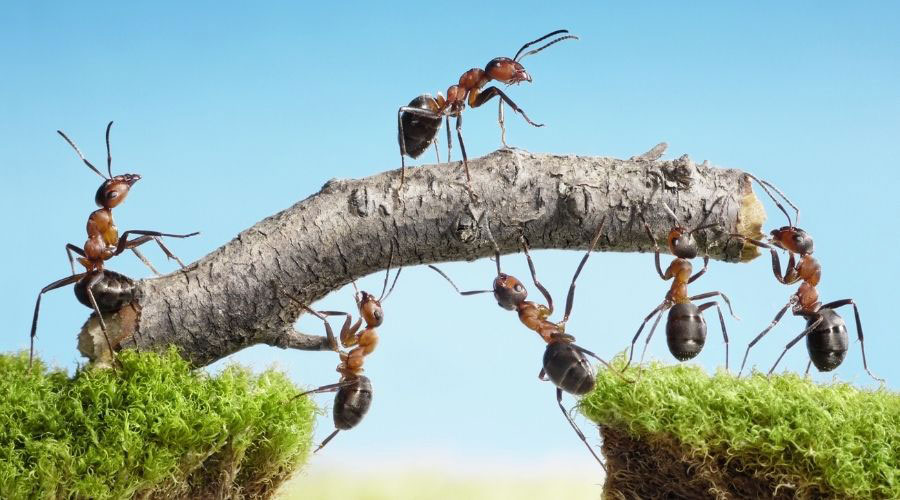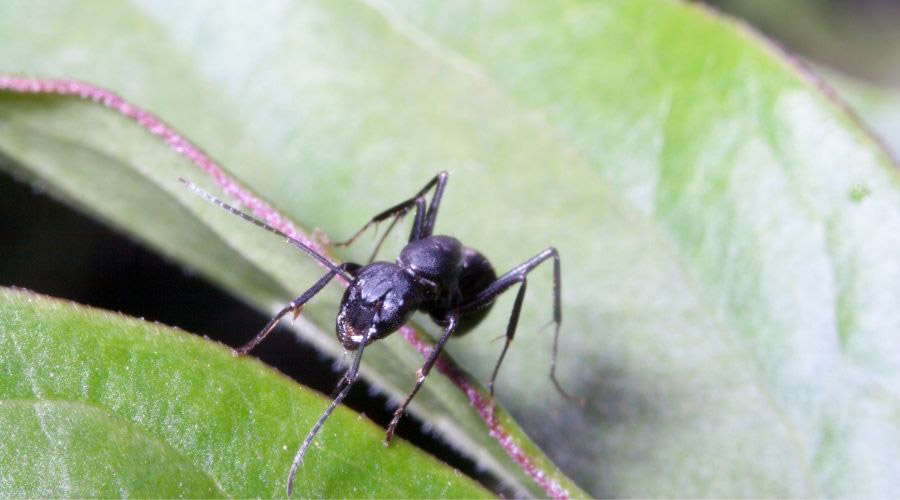


Ants in your sugar, crawling all over your counter, taking over the bread packet! Ugh! It is frustrating and inconvenient when ants take over your kitchen. The problem of dealing with these tiny invaders has been challenging people for centuries. It is never enough to get rid of one ant – that is the easy part.
To completely eradicate the whole ant nest or colony is the challenge. Many people turn to ant traps to eliminate the ants, but often the ant traps appear to have little effect on the ants.
Ant traps do not always work because other species of ants attract different baits. Ant traps are often removed too soon, as it takes time and works to become effective. Ant traps also might not be in the right spot where they can find them, making them ineffective.
This article will explore why ant traps do not always work. We will also consider alternative methods and look at effective poisons.

Get FREE quotes from licensed pest control technicians in your area today. Whether you need spraying for ants, roaches, spiders, ticks, mosquitos, or bed bugs, We Can Help! All technicians are screened, licensed, and insured.
We earn a commission if you purchase at no additional cost to you.Ants are attracted to homes to obtain food and water. Ants can use the tiniest crumbs and smudges as a food source. They are also experts at invading any containers containing food that are not adequately sealed. An ant colony has a high water demand.
It is common for ants to invade homes in dry seasons with a shortage of naturally available water. Leaks, droplets of water in the sink, and kettles full of water all become overrun by ants. Some ants even climb up into water spouts or taps to access the water. Ants are most often seen in kitchens and bathrooms.
Ants are opportunists, taking advantage of every resource presented to them. If there is no other suitable environment, the ants will build their colony nest in the walls or foundations of a home. Food and water sources in the house make it an even more attractive site for the ants to establish their nest.
There are multitudes of ant species in the United States. Some species are found more commonly in homes. Each species has different food preferences, affecting their response to ant traps. Some of the most common ants to see in houses are:
| Name | Description | Food Preference |
| Carpenter Ants | Black. Quarter to half an inch long. Excavate wood to make nests. Do not bite or sting—most active after sunset. | Sugar and protein are preferred foods. |
| Odorous House Ants | Tiny ants. Dark brown/ black bodies with light brown legs. Release a noxious smell when crushed. Nest in the masonry of the house. They are resilient and can live and work despite losing limbs or sustaining crush injuries. Do not sting or bite. | Sugary food is preferred. Often invade fruit baskets, boxes of biscuits, and any other sweet substance. |
| Pavement Ants | Small brown or black ants with light-colored antennae and legs. They prefer to live outside under paving but will forage for food in homes. They have a stinger that can deliver an unpleasant sting. | Their food preference is sweet or greasy food. |
| Pharaoh Ants | Light tan or reddish-brown ants with dark backsides. They prefer to create nests in the home. Most common ant seen in US homes. | They prefer sweet food but eat anything including proteins and often devour other insects. |
| Argentine Ants | Tiny dark brown ants that live in massive colonies with multiple queens. On Argentine ant colony can take over an entire city block. Enter homes when weather conditions are extreme – very dry or very wet. They are very aggressive. | Prefer sweet, greasy food but will eat anything they can find. |
| Fire Ants | Small, red ants with a nasty burning sting. They prefer to nest outside in mounds but will enter homes to forage for food. | Prefer protein when available but will eat most food items. |
| Crazy Ants | They have long legs and move haphazardly, hence the name. Live in supercolonies and often seek warmth by electrical cables causing thousands of dollars worth of damage. | Omnivorous ants that will eat almost anything. |
As mentioned earlier in the article, ants do not live alone but rather in colonies. The colonies may have a single queen or multiple queens. A single ant in a home would not cause concern. When there is a colony with thousands of ants, they cause extensive damage and can significantly contaminate human food supplies.
Colonies have a highly organized social structure and a division of labor. The result is that the ants observed in the home are workers or foraging ants. Worker ants are only a fraction of the number of ants in the colony. Worker ants need to take the bait into the colonies to eradicate the entire colony.
Ant traps are usually plastic receptacles that contain ant poison and some bait to attract the ants. Many different ant traps on the market may work with varying degrees of effectiveness or not at all. Ant traps have small holes where the ants can access the bait and poison.
An efficient problem with ant traps is that it is difficult to see into the trap to estimate how much poison bait is left and whether it is still viable or has become old and dried out. This factor is one of the reasons ant traps may fail to kill ants.
Ant traps are a bit of a misnomer. An ant trap is not designed to trap ants inside, which many people expect, considering the name. The ant trap attracts the ant, which feeds on the bait and returns it to its colony. The aim of this is to eradicate the colony.
Quick-acting poison or ant deterrent sprays can be counterproductive as they do not address the problem of the colony. Many people, therefore, believe ant traps do not work as the ants can still leave the ant trap alive.
Scout ants go out from colonies to locate food and water supplies. Once they have found the food or water source, they lay a trail back to the ant nest. The path is marked with pheromones. Pheromones are chemical substances produced in the ant’s body that communicate important information to other colony members.
The worker ants will ignore a food source that scouting ants have not identified. They will walk right by it on their way to the recognized food or water source.

Many people complain that ant traps attract ants. Initially, this may seem to be true. The scout ants identify the bait in the trap as a food source. Worker ants follow the pheromone trail laid by the scout ants and begin taking food morsels back to the nest. The ants will keep coming as long as the bait is there.
It may look, therefore, as though the ant trap is making the problem worse. The reality is that the worker ants must come to feed and take the ant poison back to the colony.
When the homeowners feel ant traps are not working, they look at other solutions. The internet provides a mountain of information. Many people are overwhelmed and unable to decide where to start eliminating ants from their homes. Ant traps are a useful idea, but they are not always effective. Poisoned bait remains one of the most effective weapons in exterminating ant colonies.
Here are other natural ways to repel ants:

Ants are nuisance pests that can damage a home and contaminate food. Many times ant traps do not work. There are some methods which you can take to make them more useful. Reusable bait stations, pieces of paper with bait, and inserting poisoned gel into cracks can be used as alternative methods.
Choosing the correct bait for the ant species you are trying to eliminate is essential. Try to make the home as unwelcoming to ants as possible by fixing leaks, removing vegetation that touches the house, and cleaning regularly.

Get FREE quotes from licensed pest control technicians in your area today. Whether you need spraying for ants, roaches, spiders, ticks, mosquitos, or bed bugs, We Can Help! All technicians are screened, licensed, and insured.